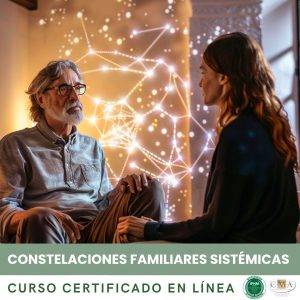6.9 – Entrepreneurial and Career Management Skills

Entrepreneurial and career management skills are essential for the Laughter Therapist who wishes to develop his business in a sustainable and fulfilling manner. Beyond technical and relational expertise, it’s crucial to know how to position oneself in the market, create an attractive offer, manage one’s time and resources. It’s by becoming a true entrepreneur of their career that the Laughter Therapist can make their mission shine in the service of the greatest number.
The first step is to clarify their vision and objectives. The Laughter Therapist takes the time to define their professional project, aligned with their values, aspirations, strengths. They identify their “why”, their reason for being, what gives meaning to their commitment. They visualize where they want to be in 5 years, 10 years, the impacts they want to create. This vision is their lighthouse, their guide for strategic choices.
After several years as an employee in an association, Sophie decides to start as an independent Laughter Therapist. Before starting, she takes the time for a skills assessment, to clarify her deep motivations. She realizes that her driving force is to make laughter accessible to the greatest number, particularly to vulnerable audiences. With this clarity, she defines her positioning: to intervene primarily in hospital and medico-social environments, with solidarity pricing. This aligned vision becomes her leitmotif for all her decisions.
The Laughter Therapist learns to know their market, to find their fair place. They analyse the needs and expectations of their potential clients, emerging trends, the actors involved. They identify what makes them unique, their unique added value. They define their price positioning, consistent with their expertise and target. This market study feeds their business plan, to build a viable and meaningful business model.
Karim, a Laughter Therapist passionate about neuroscience, decides to specialize in quality of life at work issues in companies. He carries out a thorough study of this market: key issues (stress, burn-out…), existing solutions (training, coaching…), allocated budgets. He realizes that his strength is to bring an innovative approach, based on the latest scientific discoveries, with concrete benefits for performance. He creates a premium offer, “NeuroLaugh”, aimed at management committees. By targeting this high added value micro-market, he differentiates himself and optimizes his impact.
Developing one’s activity also requires marketing and communication skills. The Laughter Therapist learns to make their offer known, through different channels: website, social networks, newsletter, events… They take care of their personal branding, to embody their expertise in an authentic and attractive way. They cultivate their network, participate in conferences, develop partnerships. This visibility increases their credibility and attracts new opportunities.
Lucie, a school Laughter Therapist, creates a blog to share her experiences and advice. Every week, she posts an inspiring article, illustrated with photos and testimonials. She interviews experts in positive pedagogy, shares resources. Little by little, her community grows, teachers from around the world ask her for interventions. Her blog becomes a real reference, opening up new professional horizons, such as the creation of an online course. By generously sharing her expertise, Lucie multiplies her impact and her notoriety.
Being an entrepreneur also means knowing how to manage one’s time and priorities. The Laughter Therapist learns to organize their schedule optimally, aligned with their objectives. They define their key activities: session facilitation, content creation, commercial prospecting, administrative… They allocate dedicated slots, with rituals to optimize their concentration. They use productivity tools, such as Eisenhower’s matrices to prioritize their tasks according to their urgency and importance. This time management allows them to maintain a balance between professional and personal life, essential to preserve their energy and creativity.
Overwhelmed by requests, Mehdi decides to review his organization. He lists all his activities and checks them: which ones are really essential? Which ones can be automated, delegated, or even eliminated? He realizes that he spends too much time on social networks, at the expense of creating new workshops. He sets up a schedule with slots dedicated to each activity, and sticks to it. He invests in an invoicing software to automate his administrative tasks. These adjustments save him 10 hours per week, which he reinvests in the development of his offer. Mehdi understands that his time is his most precious resource.
Developing one’s activity also means knowing how to manage one’s cash flow and profitability. The Laughter Therapist trains in the basics of management: establishing a provisional budget, following his income and expenses, calculating his break-even point. He learns to invoice at the right price, valuing his expertise and his preparation time. He anticipates slow periods and sets up strategies to smooth his income: online workshops, derivative products, subscriptions… This healthy management allows him to sustain his activity and invest in its development.
After one year of activity, Samia takes stock: despite quality services, her turnover is just breaking even. By analyzing her accounts, she realizes that her prices are too low compared to her investment. She decides to review her offer: she creates packages with additional options (educational materials, follow-up sessions…), she offers in-house training with an attractive day rate. She also learns to better qualify her prospects, to focus on the most promising ones. These adjustments pay off: in 6 months, her turnover increases by 30%, finally allowing her to generate a decent salary. Samia has integrated that being an entrepreneur also means being a good manager.
Finally, the Laughter Therapist cultivates a posture of lifelong learner to grow their activity. They are curious about innovations in their field, train in new tools, exchange with peers. They solicit client feedback to continually improve their services. They dare to step out of their comfort zone, test new formats, new audiences. This adaptability allows him to stay in tune with emerging needs and to renew himself.
After 5 years as an independent Laughter Therapist, Javier feels that he has exhausted his offer. Rather than stagnate, he decides to challenge himself: he enrolls in an incubation program to transform his activity into a social and solidarity enterprise. Accompanied by mentors, he learns to think bigger: develop a team, raise funds, spread his concept. It’s a quantum leap that pushes him to clarify his reason for being, structure his governance, involve his stakeholders. A year later, Javier co-founded “Laugh without Borders,” an association that trains refugee Laughter Therapists to work in camps. By daring to shake up his model, Javier has found an aligned path to multiply his impact.
At a conference, Sophie meets the director of a large mutual group, charmed by her approach. He proposes a partnership to deploy Laughter Therapy workshops in all his establishments, thus reaching thousands of patients. It’s a unique opportunity for Sophie to take a step forward, but also an organizational challenge: how to ensure quality on such a scale? Trained in project management, she assembles a team of qualified Laughter Therapists, creates a training and follow-up program, develops evaluation tools. She learns to delegate, to coordinate, to manage remotely. This strategic partnership opens up new development perspectives for her, such as the creation of a national network of Laughter Therapists. By cultivating her entrepreneurial skills, Sophie realizes her dream: to make laughter a true public health tool.
Thus, entrepreneurial and career management skills are key to transform one’s passion into a flourishing and meaningful activity. By cultivating their vision, refining their positioning, and developing their network, the Laughter Therapist creates the conditions for their sustainable success. By rigorously managing their time and resources, they optimize their efficiency and profitability. By daring to step out of their comfort zone, they open new horizons for their activity and their impact. But above all, by remaining connected to their reason for being, by embodying their values on a daily basis, they find a deep alignment between their professional success and personal fulfilment. Being a laughter entrepreneur is to make one’s career a path of joy and contribution to the world.
Key points to remember:
– Entrepreneurial and career management skills are essential for developing a sustainable and fulfilling Laughter Therapist activity.
– Clarifying your vision, objectives, and positioning allows you to guide your strategic choices.
– Knowing your market, identifying your unique added value, and defining appropriate pricing are keys to building a viable economic model.
– Developing visibility and credibility through marketing, communication, and networking opens new opportunities.
– Managing your time, priorities, and organization effectively allows you to maintain balance and optimize your impact.
– Having financial management skills (budget, profitability, cash flow) is essential for the sustainability and development of your activity.
– Adopting a lifelong learner’s posture, daring to step out of your comfort zone and seizing strategic partnership opportunities, grows the activity towards new horizons.
– Staying connected to your reason for being and embodying your daily values allows you to find a deep alignment between professional success and personal fulfilment.
👉 To download docx (Editable) file click here : Click here
👉 To download PDF file click here : Click here
👉 To download MP3 file click here : Click here





















































































